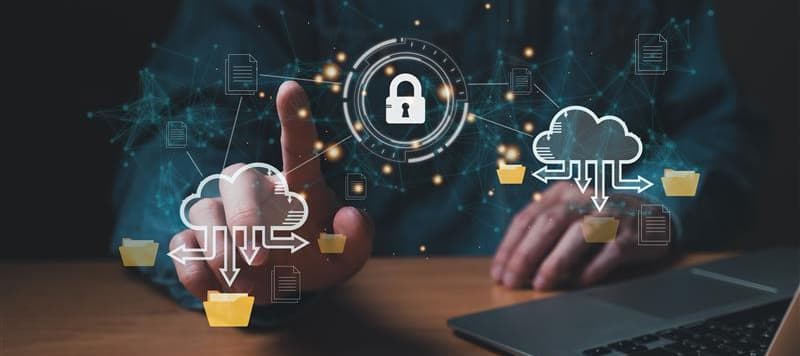October is Cybersecurity Awareness Month – that means it’s time to review your cybersecurity and computer backups. Officially christened by the U.S. President, Cybersecurity Awareness Month teaches us that ultimately you can protect yourself, your family and your business.
October marks the perfect time to review your cybersecurity and computer backup. With hackers and criminals constantly changing their tactics and innovating new methods, it may seem overwhelming to keep up. We’re here to help simplify it all.
Cybersecurity, simplified
We’ve all seen the headlines. Hackers are targeting families, businesses and even our infrastructure in their pursuit of a quick buck. The news is alarming, but the truth of the matter is you have access to all the tools you need to keep your family, your devices and your business safe.
We’re going to break down the steps you need to take to make sure you have a fighting chance against cybercrime.
Staying safe online
- Update your software
Hackers love to see outdated software. It acts like an open door and practically invites them and tells them to get comfortable. Software companies send updates when they find security exploits or backdoors exploited by criminals. When you ensure you’re updating your software, you’re closing the easiest way in for cybercriminals
- Back up your information
Backups are invaluable. They give you the peace of mind that comes with knowing that even if disaster strikes, you’re most important files, folders and photos are safe. But let’s be honest – backups don’t just protect us from criminals. They also protect us from ourselves. We’ve all lost data to accidental deletion or a spilled cup of coffee. Backups make sure that your information is safe no matter what happens.
- Invest in antivirus
Viruses attack our computers, devices and even our phones. They break in and wreak havoc. Sometimes we don’t even know that a criminal has broken through our defenses and is spying on us. With antivirus from a trusted organization, you have the most up to date security protecting what’s important.
- Activate your VPN / WiFi protection
Sometimes criminals don’t have to brute force their way into our accounts. Often, it’s enough for them to just spy on us and steal things like our login information without us knowing. That’s where a VPN (Virtual Private Network) comes in. It ensures that whatever your send over the internet is secure and encrypted. The best part? It also works when you’re on the go. So when you’re working at the local coffee shop and connect to their unsecured public WiFi, you can browse, bank and shop securely.
- Use strong passwords (and a password manager)
We all see the warnings – don’t reuse your passwords, don’t make your passwords easy to guess and don’t use passwords as simple as your birthdate. The warnings are true. If you don’t use strong passwords, you make yourself vulnerable. But it can be overwhelming to keep track of everything. Password managers keep your passwords safe and locked away and you often only need to memorize one master password to access them all.
Stay safe for Cybersecurity Awareness Month
There’s no better time to make sure you’re using the right tools to fight cybercrime. Follow our list of the 5 most important steps for staying safe online and you’ll have a leg up on hackers.
Interested in exploring industry leading cybersecurity?
Want to learn about automatic cloud backup?










